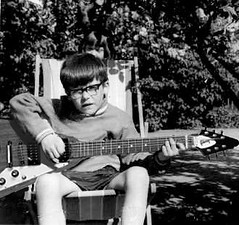Saturday, October 11, 2008
POWER TRIO

VH1 dedicated a whole day to the band a short while back, 'Rush Hashana' celebrated the Jewish New Year with 24 hours of Rush programming, featuring the concert films 'Rush In Rio' (2003), and 'R30' (2005), as well as a great many hours of Rush videos.
Young guitarist Aleksandar Živojinović, aka Alex Lifeson, formed Rush in Toronto, Canada, in August of 1968 with Drummer John Rutsey, and bassist/vocalist Jeff Jones. Bassist/vocalist Gary Lee Weinrib, aka Geddy Lee, replaced Jones a few weeks later.
Influenced by the Heavy Rock blasting out of Britain by acts like Cream, Hendrix, and Zepplin, the then still in high school members of Rush gigged locally as often as possible. After graduating, they expanded their horizons playing shows throughout Ontario, and frequently crossing the border into mid-western USA.
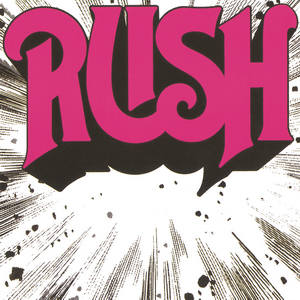
As it often happens to young dedicated musicians, after years of slogging it out in clubs they garnered a sizable fan base, but were given a very cold shoulder by the major labels. Again, as often happens with dedicated young musicians, Rush decided in 1974 to go the DIY route and record and release their debut record on their own Moon Records label. Engineered by Terry Brown, who would produce the band's first nine records, 'Rush' failed to make much noise until a Chicago disc jockey began giving 'Working Man' some air time. The song quickly took off, and Mercury Records stepped in, signed the band and re-released the record.
Soon after, John Rutsey quit due to health reasons. The band held auditions, and two weeks before their first proper US tour they found Neil Peart, who would go on to handle the lyric writing duties as well as provide the his legendary drum skills.

'Fly By Night' followed in 1975 and showcased what would become the classic Rush format, progressive but accessible Rock anthems (the title track) and epic fantasy based compositions ('By-Tor and the Snowdog').
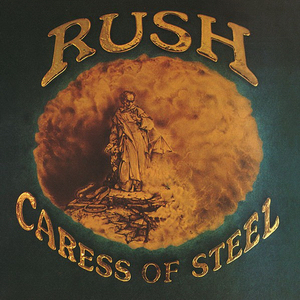
Rush was ascending, their audiences were growing, and in an effort to strike while the iron was hot, they quickly returned to the studio to record 'Caress of Steel'. In retrospect, they might have been better off taking a few months to develop stronger material, as well as spending more time in the studio recording it. There are some good moments on 'Caress of Steel', 'Bastille Day', and 'Lakeside Park', but much of the album is fantasy oriented, including the side-long 'The Fountain of Lamneth', which made the record less accessible. The overall sound of the record is a bit lacklustre as well, suffering from a muddy mix that renders the album less than stellar.
Feeling the pressure to deliver, and cognisant of the fact that 'Caress of Steel' fell short of the bar, the band set out on a miserable tour they quickly dubbed the 'Down the Tubes Tour'. Mercury Records' response to 'Caress of Steel' was to pressure the band to concentrate on more commercial material for their next foray in the studio. Rush's response was to ignore the record execs, and press on with their vision. They knew that it was make or break time, but they were not interested in 'making it' if 'making it' meant compromise.
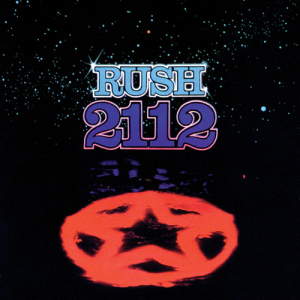
Fortunately for Rush, the resulting record, '2112', was a masterwork. Opening with another side-long song cycle, '2112', was a defiant move and a triumph. Whereas 'The Fountain of Lamneth' was meandering, unfocused, and lacking in punch, '2112' began with a brilliant and powerful overture that was followed by the slamming, super heavy and super catchy 'Temples of Syrinx'. A tale of a repressive future, and one man's struggle against it followed, and with it, Rush delivered the record that would finally land them on terra firma in the music biz.
The second side featured five nicely crafted and dynamic compositions. Beginning with their ode to altered consciousness, 'A Passage to Bangkok', and wrapping with the anthemic 'Something for Nothing', the second side offered a balance to the first, and together they set the bar extremely high for future Rush records. Rush was more than happy to rise to that challenge.
A much more successful tour followed, culminating in a three night stand at Toronto's Massey Hall, which was recorded for Rush's first live release, the double album 'All the World's a Stage'.

Rush and Terry Brown travelled to Rockfield Studios in Wales for their next studio effort. While 1977's 'A Farewell to Kings' didn't quite live up to the standard set by its predecessor, it wasn't hack job either. 'Closer to the Heart', a very accessible AOR staple, is surrounded by a dynamic assortment of songs, including two epic Prog riff-o-ramas clocking at over ten minutes:'Xanadu', and 'Cygnus X-1'.
'A Farewell to Kings' gave Rush their first Gold disc, and gave testament to Rush and Terry Brown's mastery of the recording process.
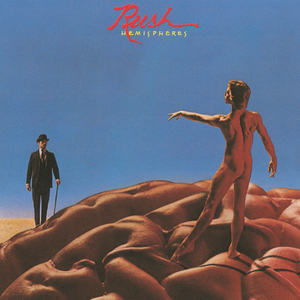
Returning to Rockfield Studios in 1978 for their sixth LP, 'Hemispheres', Rush stayed the course, delivering another fine album. The highlight is the nearly ten minute instrumental, 'La Villa Strangiato (An Exercise In Self-Indulgence), which has been responsible for many a jaw hitting many floors. Also noteworthy, 'The Trees' finds Neil waxing socio-political, albeit allegorically, and considerably cynical as well.

Another change in environment was needed, and Rush chose Le Studio in Quebec for 'Permanent Waves', and the result was another pivotal record that marked a new phase in their career. I chalk it up to confidence and comfort, but whatever the reasons, 'Permanent Waves' is Rush's maturing point.
Another Gold record, 'Permanent Waves' provided the band with two classics, 'Spirit of the Radio' and 'Freewill', and kept the Prog fans happy with 'Jacob's Ladder' and 'Natural Science'.
As good as 'Permanent Waves' was, and it was very good, it was, in the end, a pre-cursor, a taste of what was still to come.
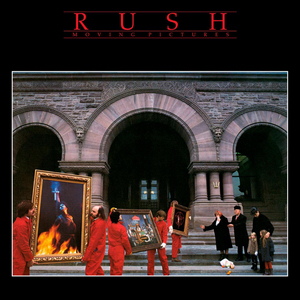
What can one say about 'Moving Pictures'? It's hard to come up with the proper superlatives. It's certainly Rush's best work, and many, yours truly included, would praise it as one of the ten best Rock records ever made. The opening track, 'Tom Sawyer' enjoys an ubiquity that somehow defies becoming 'played out'. I always turn the radio up when I hear it, as I do for any of other songs on 'Moving Pictures' for that matter. Twenty-seven years later, the album continues to amaze and inspire. For the record, 'Camera Eye' is my pet cut, but every cut is exemplary.
Another live record followed, 'Exit Stage Left', and then it was time to try and follow 'Moving Pictures'.
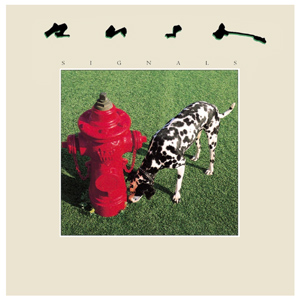
'Signals' followed in 1982, and has never really hooked me. 'New World Man' was a successful single for the band, but 'Subdivisions' has turned out to have more lasting appeal, or at least radio presence. 'Signals' marked the end of Terry Brown's working relationship with Rush.
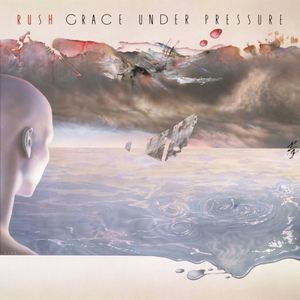
1984's 'Grace Under Pressure' had me worried that the band was on the decline. It sounded cold, dispassionate, and sterile to me. The single was 'Distant Early Warning'.

Nearly convinced that Rush was 'over', I was pleasantly proven very wrong by 1985's 'Power Windows'. The band seemed passionate again, and well crafted, powerful songs like 'Big Money', 'Manhattan Project', and 'Marathon' made me a believer again.
For my money, Jackson money, Rush hasn't made a record as good as 'Power Windows' since. Many wouldn't agree, but that's my opinion, and since I never purchased any of them, I have little to add other than to this day, on the stage, Rush has no competition.

VH1 dedicated a whole day to the band a short while back, 'Rush Hashana' celebrated the Jewish New Year with 24 hours of Rush programming, featuring the concert films 'Rush In Rio' (2003), and 'R30' (2005), as well as a great many hours of Rush videos.
Young guitarist Aleksandar Živojinović, aka Alex Lifeson, formed Rush in Toronto, Canada, in August of 1968 with Drummer John Rutsey, and bassist/vocalist Jeff Jones. Bassist/vocalist Gary Lee Weinrib, aka Geddy Lee, replaced Jones a few weeks later.
Influenced by the Heavy Rock blasting out of Britain by acts like Cream, Hendrix, and Zepplin, the then still in high school members of Rush gigged locally as often as possible. After graduating, they expanded their horizons playing shows throughout Ontario, and frequently crossing the border into mid-western USA.

As it often happens to young dedicated musicians, after years of slogging it out in clubs they garnered a sizable fan base, but were given a very cold shoulder by the major labels. Again, as often happens with dedicated young musicians, Rush decided in 1974 to go the DIY route and record and release their debut record on their own Moon Records label. Engineered by Terry Brown, who would produce the band's first nine records, 'Rush' failed to make much noise until a Chicago disc jockey began giving 'Working Man' some air time. The song quickly took off, and Mercury Records stepped in, signed the band and re-released the record.
Soon after, John Rutsey quit due to health reasons. The band held auditions, and two weeks before their first proper US tour they found Neil Peart, who would go on to handle the lyric writing duties as well as provide the his legendary drum skills.

'Fly By Night' followed in 1975 and showcased what would become the classic Rush format, progressive but accessible Rock anthems (the title track) and epic fantasy based compositions ('By-Tor and the Snowdog').

Rush was ascending, their audiences were growing, and in an effort to strike while the iron was hot, they quickly returned to the studio to record 'Caress of Steel'. In retrospect, they might have been better off taking a few months to develop stronger material, as well as spending more time in the studio recording it. There are some good moments on 'Caress of Steel', 'Bastille Day', and 'Lakeside Park', but much of the album is fantasy oriented, including the side-long 'The Fountain of Lamneth', which made the record less accessible. The overall sound of the record is a bit lacklustre as well, suffering from a muddy mix that renders the album less than stellar.
Feeling the pressure to deliver, and cognisant of the fact that 'Caress of Steel' fell short of the bar, the band set out on a miserable tour they quickly dubbed the 'Down the Tubes Tour'. Mercury Records' response to 'Caress of Steel' was to pressure the band to concentrate on more commercial material for their next foray in the studio. Rush's response was to ignore the record execs, and press on with their vision. They knew that it was make or break time, but they were not interested in 'making it' if 'making it' meant compromise.

Fortunately for Rush, the resulting record, '2112', was a masterwork. Opening with another side-long song cycle, '2112', was a defiant move and a triumph. Whereas 'The Fountain of Lamneth' was meandering, unfocused, and lacking in punch, '2112' began with a brilliant and powerful overture that was followed by the slamming, super heavy and super catchy 'Temples of Syrinx'. A tale of a repressive future, and one man's struggle against it followed, and with it, Rush delivered the record that would finally land them on terra firma in the music biz.
The second side featured five nicely crafted and dynamic compositions. Beginning with their ode to altered consciousness, 'A Passage to Bangkok', and wrapping with the anthemic 'Something for Nothing', the second side offered a balance to the first, and together they set the bar extremely high for future Rush records. Rush was more than happy to rise to that challenge.
A much more successful tour followed, culminating in a three night stand at Toronto's Massey Hall, which was recorded for Rush's first live release, the double album 'All the World's a Stage'.

Rush and Terry Brown travelled to Rockfield Studios in Wales for their next studio effort. While 1977's 'A Farewell to Kings' didn't quite live up to the standard set by its predecessor, it wasn't hack job either. 'Closer to the Heart', a very accessible AOR staple, is surrounded by a dynamic assortment of songs, including two epic Prog riff-o-ramas clocking at over ten minutes:'Xanadu', and 'Cygnus X-1'.
'A Farewell to Kings' gave Rush their first Gold disc, and gave testament to Rush and Terry Brown's mastery of the recording process.

Returning to Rockfield Studios in 1978 for their sixth LP, 'Hemispheres', Rush stayed the course, delivering another fine album. The highlight is the nearly ten minute instrumental, 'La Villa Strangiato (An Exercise In Self-Indulgence), which has been responsible for many a jaw hitting many floors. Also noteworthy, 'The Trees' finds Neil waxing socio-political, albeit allegorically, and considerably cynical as well.

Another change in environment was needed, and Rush chose Le Studio in Quebec for 'Permanent Waves', and the result was another pivotal record that marked a new phase in their career. I chalk it up to confidence and comfort, but whatever the reasons, 'Permanent Waves' is Rush's maturing point.
Another Gold record, 'Permanent Waves' provided the band with two classics, 'Spirit of the Radio' and 'Freewill', and kept the Prog fans happy with 'Jacob's Ladder' and 'Natural Science'.
As good as 'Permanent Waves' was, and it was very good, it was, in the end, a pre-cursor, a taste of what was still to come.

What can one say about 'Moving Pictures'? It's hard to come up with the proper superlatives. It's certainly Rush's best work, and many, yours truly included, would praise it as one of the ten best Rock records ever made. The opening track, 'Tom Sawyer' enjoys an ubiquity that somehow defies becoming 'played out'. I always turn the radio up when I hear it, as I do for any of other songs on 'Moving Pictures' for that matter. Twenty-seven years later, the album continues to amaze and inspire. For the record, 'Camera Eye' is my pet cut, but every cut is exemplary.
Another live record followed, 'Exit Stage Left', and then it was time to try and follow 'Moving Pictures'.

'Signals' followed in 1982, and has never really hooked me. 'New World Man' was a successful single for the band, but 'Subdivisions' has turned out to have more lasting appeal, or at least radio presence. 'Signals' marked the end of Terry Brown's working relationship with Rush.

1984's 'Grace Under Pressure' had me worried that the band was on the decline. It sounded cold, dispassionate, and sterile to me. The single was 'Distant Early Warning'.

Nearly convinced that Rush was 'over', I was pleasantly proven very wrong by 1985's 'Power Windows'. The band seemed passionate again, and well crafted, powerful songs like 'Big Money', 'Manhattan Project', and 'Marathon' made me a believer again.
For my money, Jackson money, Rush hasn't made a record as good as 'Power Windows' since. Many wouldn't agree, but that's my opinion, and since I never purchased any of them, I have little to add other than to this day, on the stage, Rush has no competition.
Comments:
Not the hugest Rush freak by a long stretch, but a big fan nonetheless. Liked 'Distant Early Warning' along with most of Signals, and Roll the Bones too.
Their show this year was the best I've seen in many years. Strangely brilliant.
Their show this year was the best I've seen in many years. Strangely brilliant.
Why? I've seen both bands, and though I thought Nick and the Bad Seeds were very good, they ain't no Rush.
There you go. I refused to see them there because I knew it wouldn't be the same, being an outdoor venue with those crowds and such.
I saw Rush twice in my life, both during the Permanent Waves tour. The first time was literally a day or two after its release, so it was hard to appreciate the "new" songs. The second was much later and mind-blowing. Jacob's Ladder is one of my favorites of all-time. I didn't really listen that much to later releases either. Pampdog was the real Rush expert in high school.
Post a Comment

